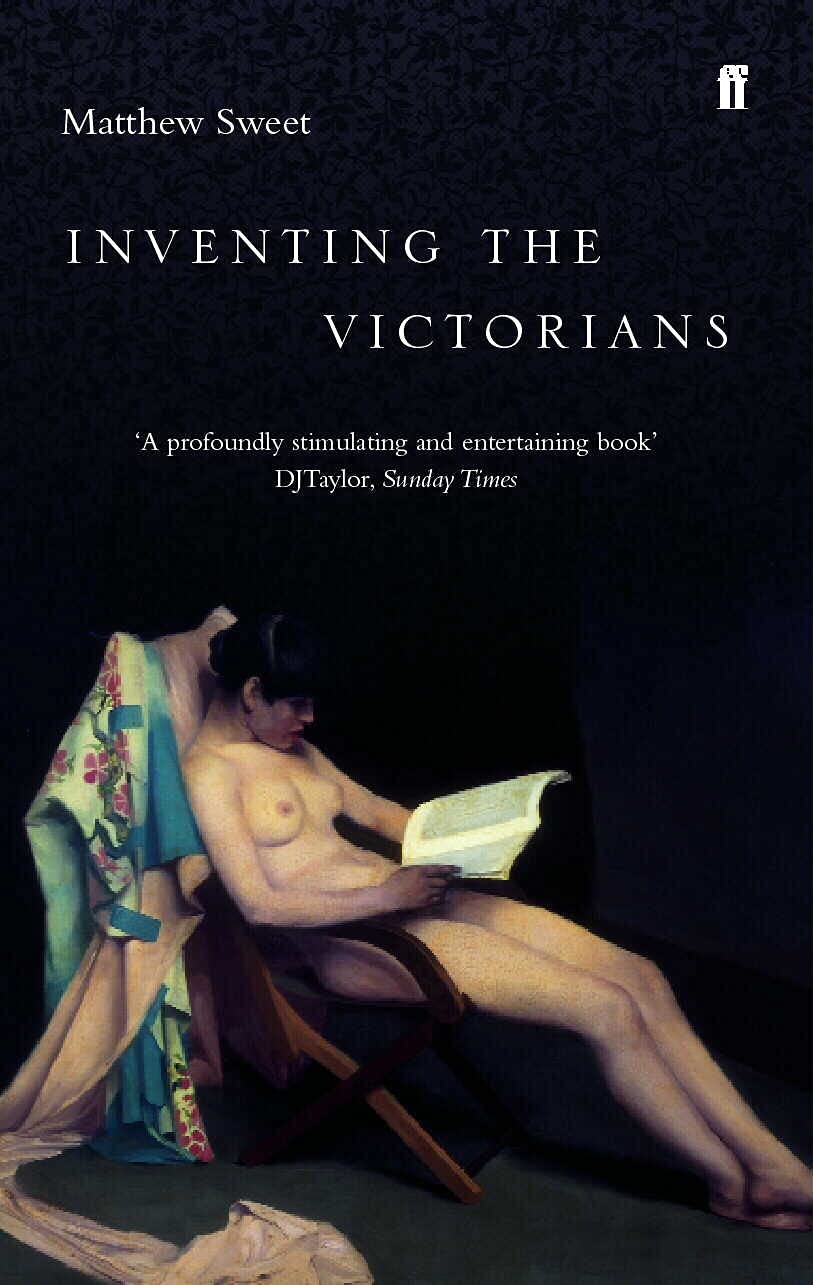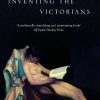Inventing the Victorians
£8.30£10.40 (-20%)
Suppose that everything we think we know about ‘The Victorians’ is wrong? That we have persistently misrepresented the culture of the Victorian era, perhaps to make ourselves feel more satisfyingly liberal and sophisticated? What if they were much more fun than we ever suspected? Matthew Sweet’s Inventing the Victorians has some revelatory – and entertaining – answers for us.
As Sweet shows us in this brilliant study, many of the concepts that strike us as terrifically new – political spin-doctoring, extravagant publicity stunts, hardcore pornography, anxieties about the impact of popular culture upon children – are Victorian inventions. Most of the pleasures that we imagine to be our own, the Victorians enjoyed first: the theme park, the shopping mall, the movies, the amusement arcade, the crime novel and the sensational newspaper report. They were engaged in a well-nigh continuous search for bigger and better thrills. If Queen Victoria wasn’t amused, then she was in a very small minority . . .
Matthew Sweet’s book is an attempt to re-imagine the Victorians; to suggest new ways of looking at received ideas about their culture; to distinguish myth from reality; to generate the possibility of a new relationship between the lives of nineteenth-century people and our own.
Read more
Additional information
| Publisher | Faber & Faber, Main edition (4 Nov. 2002) |
|---|---|
| Language | English |
| Paperback | 288 pages |
| ISBN-10 | 0571206638 |
| ISBN-13 | 978-0571206636 |
| Dimensions | 12.8 x 1.8 x 19.8 cm |










by Martin Turner
Inventing the Victorians is a journalist’s reappraisal of Victorian life and culture, following a century of modernism which tried to separate itself from the Victorian world as much as possible. Sweet’s conclusion — which is well argued with strong examples — is that our passions, interests and concerns, far from being a contrast to those of the Victorians, are a continuation of what they did and thought. On the way he explodes a number of myths, including the infamous table-leg story.
The Victorians are famous for being prudish, hypocritical, and without much of a sense of humour. Much of this, argues Matthew Sweet, follows from Lytton Strachey’s
Eminent Victorians
which, written as part manifesto for the Bloomsbury set, demonstrated how they were the opposite of the values espoused by Woolf and co.
The most famous example of Victorian prudery — and the author explores it in depth — is the alleged practise of covering the table legs in upholstery because they looked too much like a woman’s legs and thereby caused problems in the male libido. In reality, there are no actual examples of this happening. Sweet traces the story of it back to the English satirically accusing the Americans of such prurience, and later examples of the Americans returning the compliment by making the same allegation about the UK.
From here, Matthew Sweet makes a tour-de-force of comparisons between contemporary and Victorian attitudes, culminating in the parallels between Harold Shipman and the 19th century Rugely Poisoner. Not only were the crimes in almost every respect identical — a GP who prescribed deadly medicines in order to obtain the inheritances of old ladies — but the media and public response was pretty much the same as well.
Ultimately, this is a book of journalism written to prove a point, rather than a nuanced history weighing of the various positions. That said, Sweet does make a very compelling case, and it is hard to see the Victorians in quite the same light as well. The underlying picture of the age which he presents tallies with the latest social history view, for example presented in
Understanding the Victorians: Politics, Culture and Society in Nineteenth-Century Britain
.
If you’re a fan of the Victorians and have spent a lot of time on Victorian social history, there is probably little in this book which will be new for you, and you probably already came to the same conclusions yourself. If you’re a more general reader, though, this will be a real eye-opener to a century which is often disparaged and seldom understood.
by SJR
This is an interesting and readable overturning of the hoary old chestnuts and cliches that non-specialists resort to when wanting to denigrate Victorian society as stuffy and static.
However, as previous reviewers have said, if you are knowledgeable about Victorian history, then you will already be aware that piano legs were not swathed in muslin for modesty’s sake, and that Victorian society and the Victorian novel were quite as full of sex as any other, but even so, I still found this an interesting read, although I would take issue with Sweet’s lack of nuance in his assessment of the position of women. Not to be unfair on him, though, I think such lack of subtlety in the arguments in this area is partly due to the constraints of a short book surveying a wide field, and attempting to counter received popular wisdom and unreflective opinion by vividly highlighting instances of where the opposite is true.
Although Sweet is academically qualified, this is not an academic book, but one for the general reader, written persuasively and entertainingly to advance his opinions (which are not unsound). As another reviewer pointed out, it is not an academic book, in the sense of evenhandedly balancing a range of detailed sources or focusing in detail on a specific area, but all the same it would be an interesting overview for a new student to read, in that he introduces a range of ideas and does indicate his sources, both primary and secondary. From the academic point of view, though, it is important to remember that the book is over ten years old at the time of writing, and many secondary sources even older, so there have been developments in academic thinking since then.
But this is neither here nor there for the general reader – if you have any sort of interest in Victorian history, this book is certainly worth reading, and if you are not well versed in the subject you will find the overturning of the cliched version of nineteenth-century history you have read over the years both entertaining and amusing by turns. And if you consider yourself an expert, Sweet has uncovered all sorts of interesting obscurities which ensure that there is something new for everyone!
by C. Ball
Perhaps no other era in British history is subject to quite as much stereotyping and myth-making as that of the Victorians. We acknowledge the contribution they made to our lives, the legacy they have bequeathed in the forms of bridges, buildings, roads, museums and theatres, the Empire, but to a very large extent we still dismiss what they represented to themselves.
As Matthew Sweet ably points out,,the Victorians are what we define ourselves against. It is in rebelling against Victorian strictures that we have created our supposedly more free, more permissive, more relaxed, modern society. After all, that’s how we see the Victorians, isn’t it? Stodgy. Uptight. Repressed. Hypocritical. Humourless. Patriarchal. Straight-laced. Everything we aspire not to be be.
But Sweet explodes a lot of these myths, highlighting exhaustively just how wrong much of this actually is. He chronicles Victorian attitudes to sex, crime, drugs, pornography, the family, children, sensational journalism, publicity stunts, homosexuality – much of which appears surprisingly ‘modern’ to our eyes. When one ventures off the beaten path of historical research, there is an astonishing wealth of material still housed in libraries, museums and archives that demonstrate how often the Victorians were there ahead of us in the search for the new and modern. Perhaps we owe more to the Victorians than just our architecture and infrastructure…